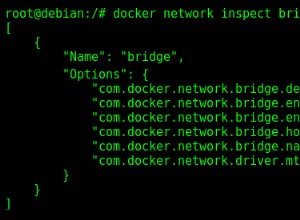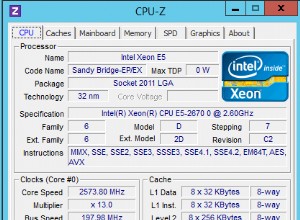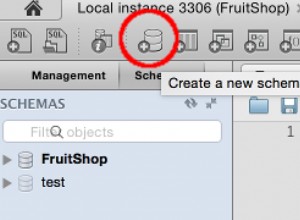Creo que tu combinación es incorrecta:
$shares = DB::table('shares')
->join('users', 'users.id', '=', 'shares.user_id')
->join('followers', 'followers.user_id', '=', 'users.id')
->where('followers.follower_id', '=', 3)
->get();
También le sugiero que nombre su tabla como follows en cambio, se siente un poco más natural decir user has many followers through follows y user has many followers through follows .
Ejemplo
$shares = DB::table('shares')
->join('users', 'users.id', '=', 'shares.user_id')
->join('follows', 'follows.user_id', '=', 'users.id')
->where('follows.follower_id', '=', 3)
->get();
Enfoque modelo
No me di cuenta de que estabas usando DB:: consultas y no modelos. Así que estoy arreglando la respuesta y proporcionando mucha más claridad. Le sugiero que use modelos, es mucho más fácil para aquellos que comienzan con el marco y especialmente SQL.
Ejemplo de modelos:
class User extends Model {
public function shares() {
return $this->hasMany('Share');
}
public function followers() {
return $this->belongsToMany('User', 'follows', 'user_id', 'follower_id');
}
public function followees() {
return $this->belongsToMany('User', 'follows', 'follower_id', 'user_id');
}
}
class Share extends Model {
public function user() {
return $this->belongsTo('User');
}
}
Ejemplo de uso del modelo:
$my = User::find('my_id');
// Retrieves all shares by users that I follow
// eager loading the "owner" of the share
$shares = Share::with('user')
->join('follows', 'follows.user_id', '=', 'shares.user_id')
->where('follows.follower_id', '=', $my->id)
->get('shares.*'); // Notice the shares.* here
// prints the username of the person who shared something
foreach ($shares as $share) {
echo $share->user->username;
}
// Retrieves all users I'm following
$my->followees;
// Retrieves all users that follows me
$my->followers;




